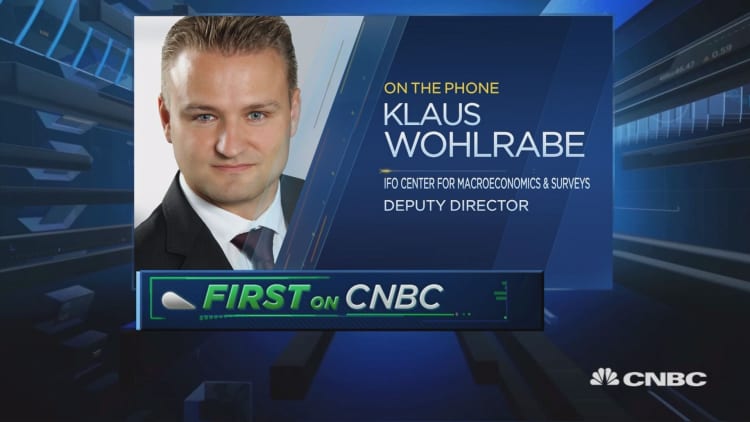Germany's factory activity slowed unexpectedly in July, offering more evidence that President Donald Trump's aggressive trade rhetoric is affecting confidence.
The German Federal Statistics Office reported Thursday that industrial orders for July fell 0.9 percent from the previous month. A consensus forecast of economists gathered by Reuters had predicted a rise of 1.8 percent.
The main driver was a decrease in foreign orders, which fell 3.4 percent from June to July. Orders for German goods from outside the euro area were down 4.0 percent.
Trump has singled out German exports for criticism, arguing that they benefit from an artificially low euro and act as a brake on U.S. domestic production. The U.S. president has threatened tariffs on Germany's influential auto sector.
While overseas orders dipped, German domestic orders increased by 2.4 percent, lending support to separate data released Thursday that tipped Europe's largest economy to grow.
The Ifo Institute for Economic Research has edged up its 2018 growth forecast for Germany from 1.8 percent to 1.9 percent, citing a stronger than expected first half of the year.
Ifo said in a statement that Germany's gross domestic product will largely be driven by private consumption over the next two years and will be bolstered by "rising employment and strong income growth."

Klaus Wohlrabe, deputy director at the Ifo Center for Macroeconomics and Surveys, told CNBC's "Squawk Box Europe" on Thursday that there had also been a small improvement in business sentiment in August following the meeting between Trump and European Commission President Jean-Claude Juncker.
Wohlrabe cautioned, however, that the pair's agreement to restrain from tariffs was seen by German businesses as "just a truce, with the war not over."
The analyst added that while Ifo's data backed a rise in Germany's growth prospects, the firm had also recorded a rise in uncertainty among CEOs.


